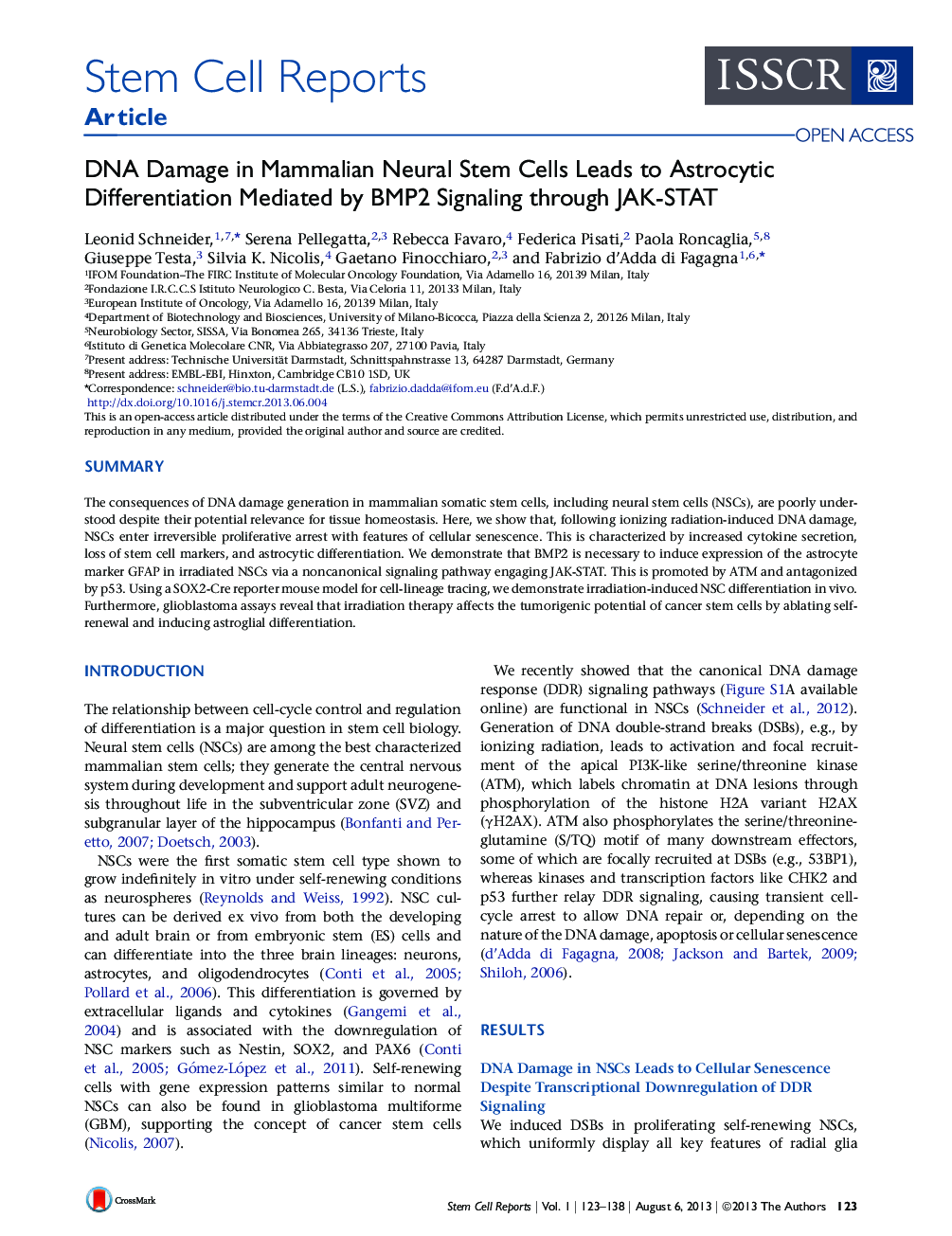| Article ID | Journal | Published Year | Pages | File Type |
|---|---|---|---|---|
| 2093526 | Stem Cell Reports | 2013 | 16 Pages |
•Irradiated NSCs undergo niche-independent cellular senescence and differentiation•Astrocytic differentiation depends on cytokine secretion controlled by ATM and p53•Induction of astrocytic marker GFAP requires noncanonical BMP2/JAK-STAT signaling•Irradiation-induced differentiation occurs in vivo in SVZ-NSC and murine GBM model
SummaryThe consequences of DNA damage generation in mammalian somatic stem cells, including neural stem cells (NSCs), are poorly understood despite their potential relevance for tissue homeostasis. Here, we show that, following ionizing radiation-induced DNA damage, NSCs enter irreversible proliferative arrest with features of cellular senescence. This is characterized by increased cytokine secretion, loss of stem cell markers, and astrocytic differentiation. We demonstrate that BMP2 is necessary to induce expression of the astrocyte marker GFAP in irradiated NSCs via a noncanonical signaling pathway engaging JAK-STAT. This is promoted by ATM and antagonized by p53. Using a SOX2-Cre reporter mouse model for cell-lineage tracing, we demonstrate irradiation-induced NSC differentiation in vivo. Furthermore, glioblastoma assays reveal that irradiation therapy affects the tumorigenic potential of cancer stem cells by ablating self-renewal and inducing astroglial differentiation.
